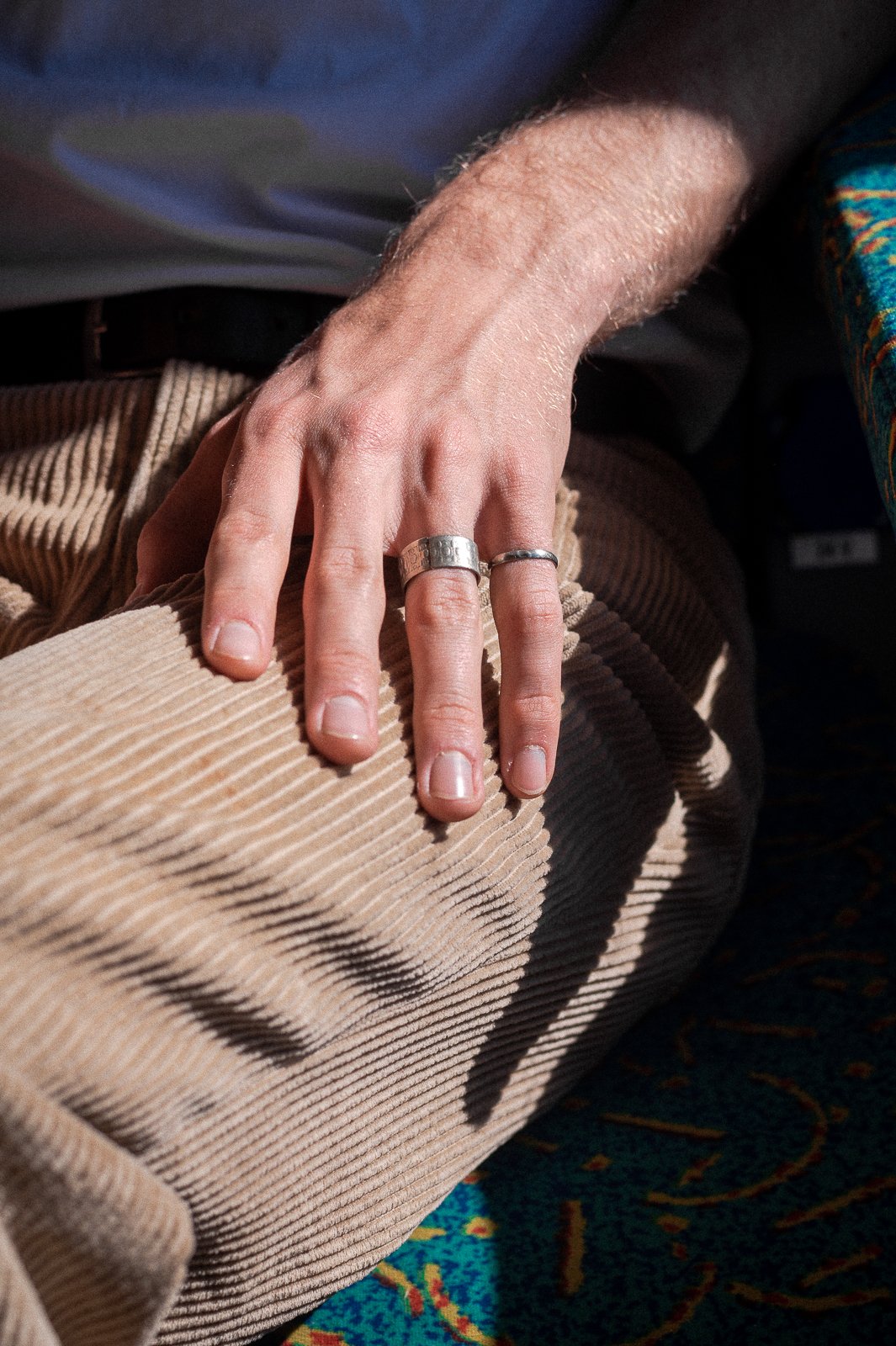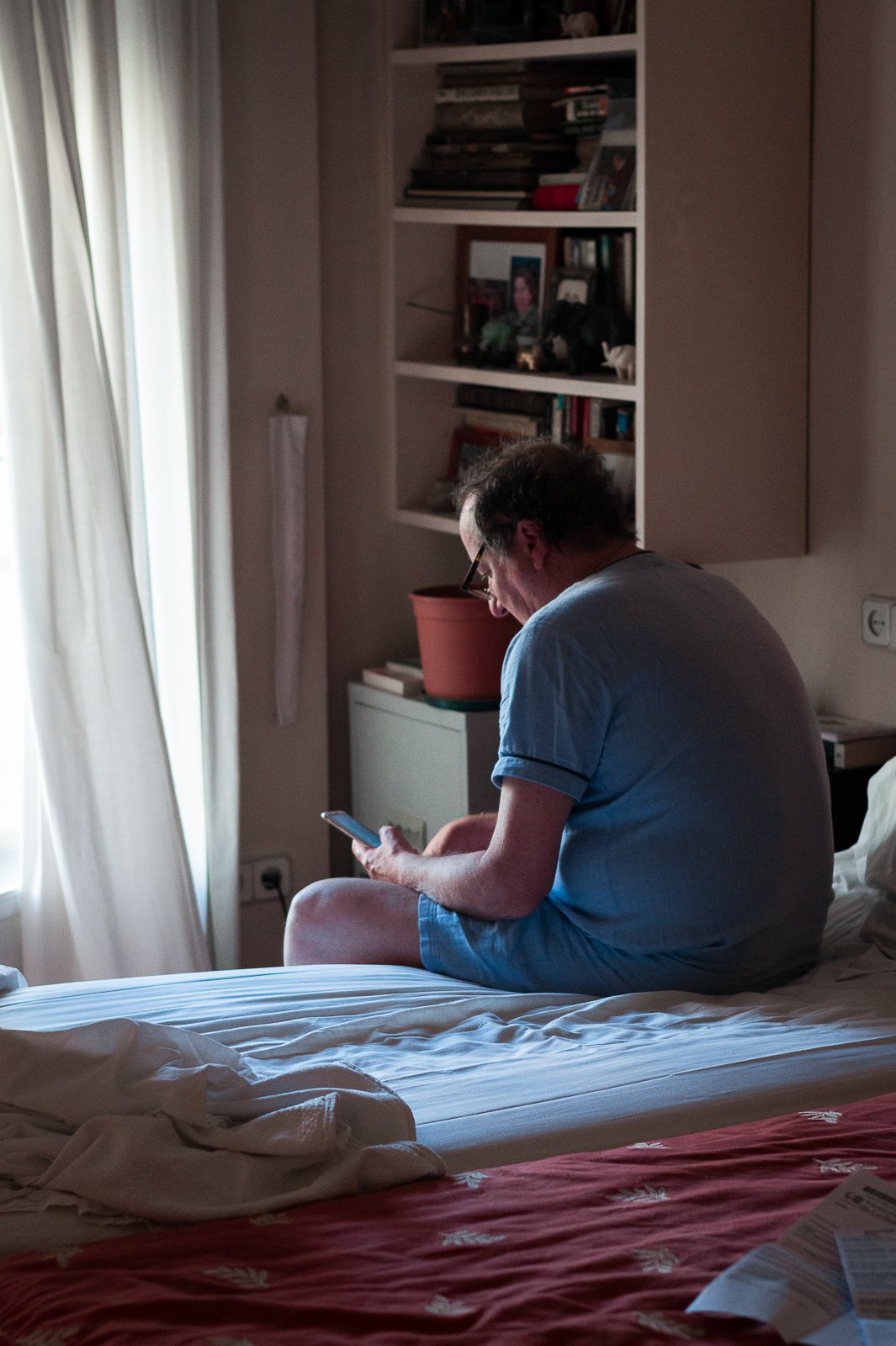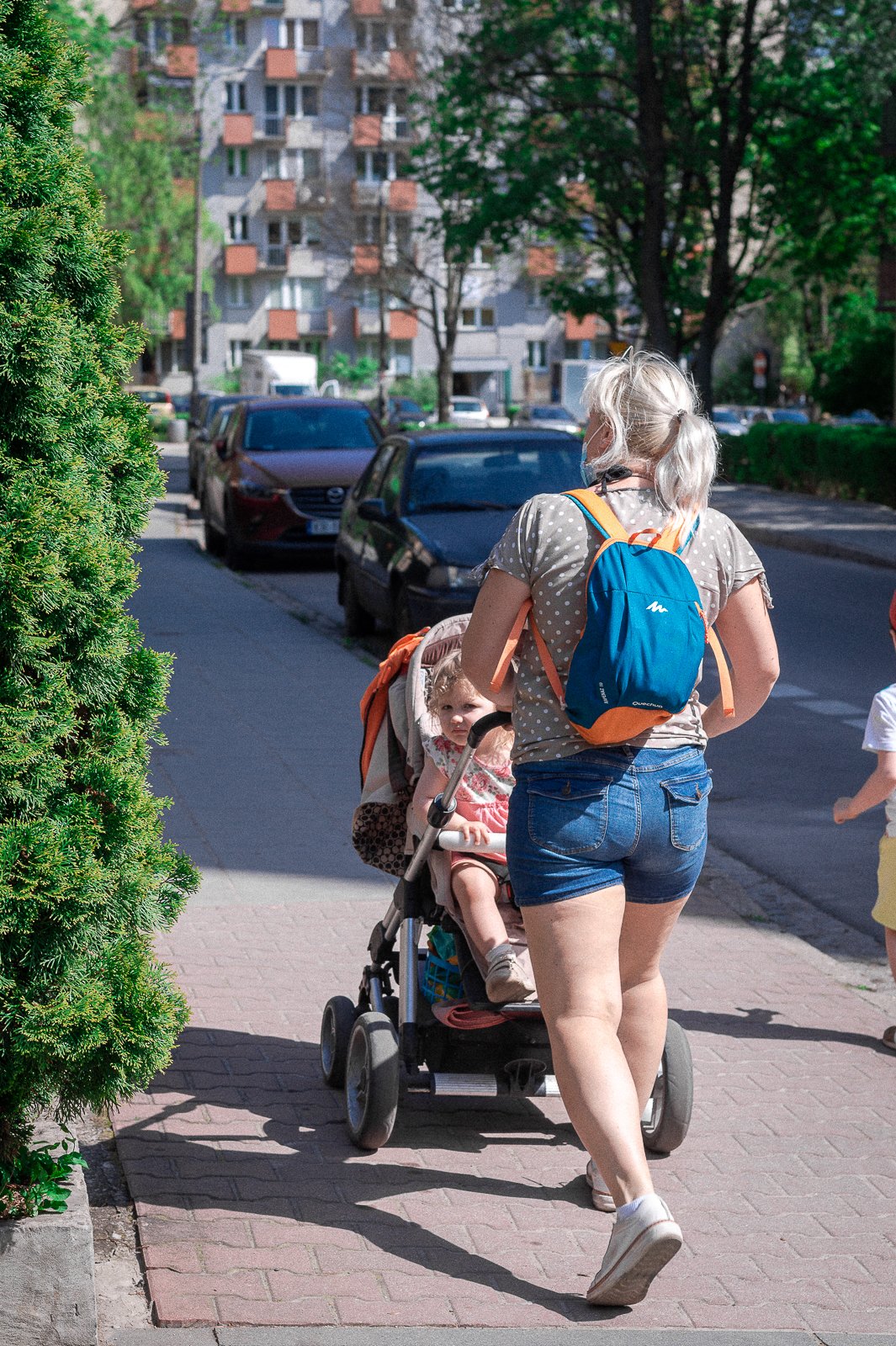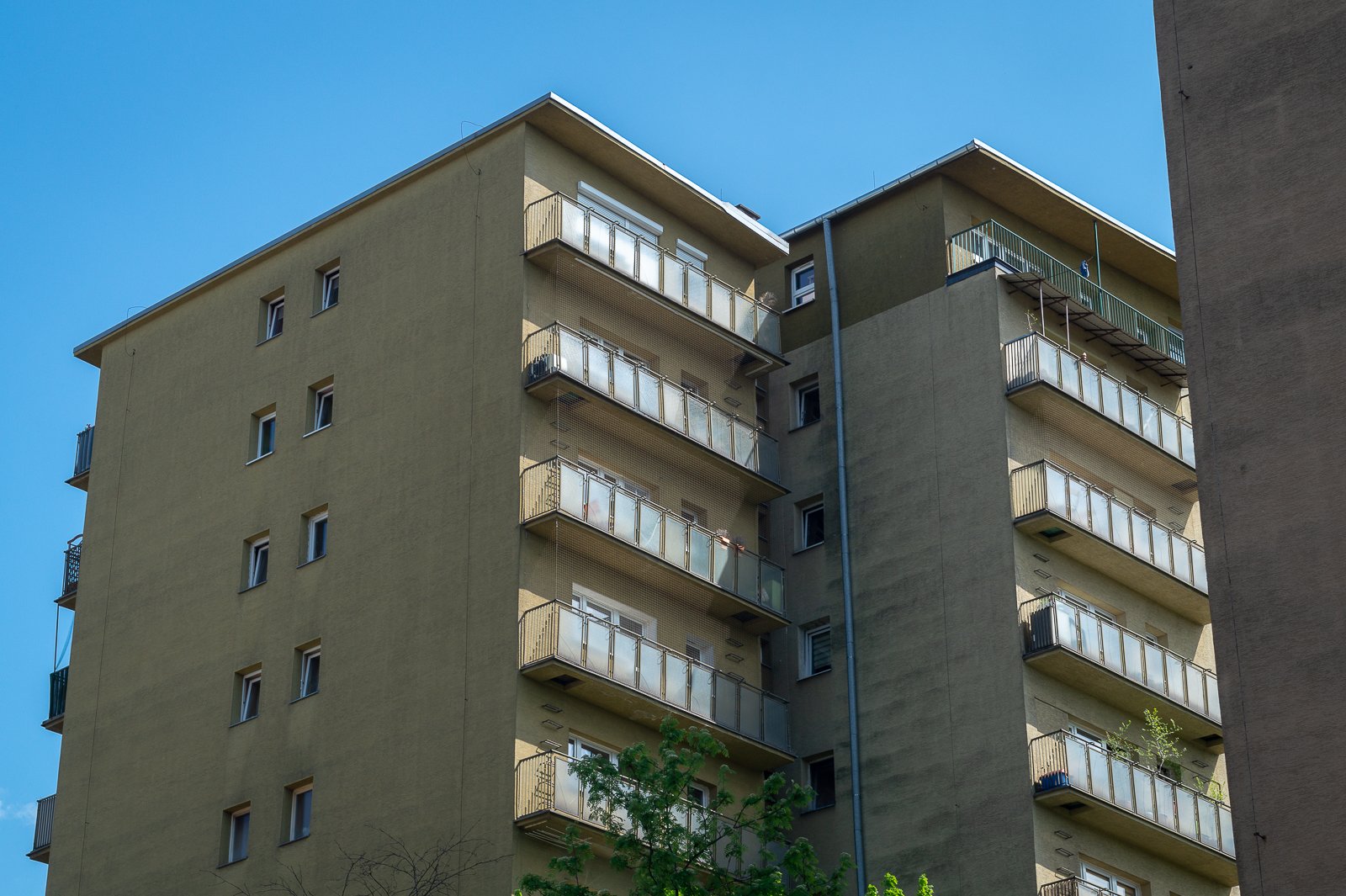Unwelcome neighbour?
According to the UN, by the end of 2016 Europe had seen nearly 5.2 million refugees and migrants reach its shores. In the beginning stages of this crisis, crowds were waiting enthusiastically at German airports, holding welcome signs for those who made impossible journeys to the borders. Naturally, some questioned Merkel’s ‘culture of welcome’ but overall the sentiment seemed to be that it was the morally correct thing to do. Nevertheless, here in Germany and across Europe when we look at the figures for unemployment rates and the number of housing discrimination cases, it seems that hospitality does have an expiration date. Whether you are an asylum seeker, migrant or expat, the label you carry can greatly affect where and who you get to live next to in Europe. As the different layers of housing get peeled back it appears that the path to becoming someone's neighbour is littered with certain obstacles for some groups of people, but why?
© Daniel Harper
Not in my neighbourhood
Housing, both in Europe and the world, at least, starts with the idea of community and neighbourhood, even before physical structures. And as I sit here on the floor of my temporary flat staring at a sea of boxes, I’m instantly overcome with a sense of anxiety. The thought of searching for a new flat again for what seems like the hundredth time in my adult life, in another new city is frankly overwhelming. As exciting as a change of scenery can be, the mere prospect of relocating is nevertheless a daunting task for most people: emotionally, financially, as well as physically if you can’t afford to hire a moving company. Moving around in Germany especially feels like a special kind of hell, one part competitive beauty pageant audition mixed with ‘god please don’t let me be homeless’. The dreams of living in that perfect neighbourhood with the perfect neighbours can go out the window quite quickly when you realise there is a limited amount of housing. And sadly, the colour of your skin or the country you come from can be a true hindrance to finding the perfect spot or rather any spot to lay your head at night.
The societal label you carry, affects your whole plight in life
Leading Western media outlets choose to primarily use the word migrant. Choosing to call someone a migrant, refugee, immigrant, or asylum seeker carries a certain stigma that has direct consequences when it comes to obtaining housing. In the past, the term migrant was mainly used to define one who moves to another country temporarily, for things such as seasonal work, while an immigrant moves to another country with the intent to settle there permanently. Refugees are defined as people forced to flee their homes because of war, violence or persecution, often without warning. Dr Charlotte Taylor, from the University of Sussex, explains the term migrant as being safe for now but there are no guarantees that won’t change in the future. According to further BBC news reports, the term migrant often gets weaponized in political circles because it is associated with economic implications. Consequently, long-time residents may start to buy into fears often stoked by certain political factions that migrants are coming for their jobs.
© Daniel Harper
Systematic discrimination at real estatate company Brebau
You can see what this looks like in practice when you take a look at the German city Bremen, where recently the newsbroke that Brebau, Bremen’s second-biggest real estate company, had a system for purposely discriminating against people of colour.
In December of 2021, I was able to sit down and speak with Jaimie who has worked as a housing coordinator and social service worker for Refugees in the Bremen area. They explained to me that they were not shocked about the Brebau scandal as someone who works with private landlords and commercial real estate companies. According to Jaimie, part of the problem stems from the stigma surrounding refugees. The most common misconception is that they are here for purely economic reasons and they don’t want to work and rather live off the social welfare and benefits system. Jaimie also explained the problem is further confounded by an overall lack of available housing in the market for everyone. Thus, the scarcity of housing has created even further unaffordable options. Therefore, part of social housing coordinators’ responsibilities tend to revolve around spending a great deal of their time speaking with private landlords to convince them that refugees can be what the landlords deem ‘a good neighbour’. Which, from the landlord’s point of view, is someone whom they feel meets the German standards of not making a lot of noise and knows how to recycle. These issues, according to Jaimie, often lead to refugees feeling they are not being helped. And for those who come here as asylum seekers, especially women, this means they are often assigned to special Refugee Housing as a matter of protection and placed on waiting lists for available housing of their very own. The reality is that even though finding housing can feel like an uphill battle, Jaimie expressed that not every landlord is opposed to renting to refugees and some very much welcome the diversity to their buildings.
Ending existing structural discrimination
With these things in mind, I wanted to know from a social service worker's point of view what could be some of the solutions to change the current situation. Jaimie was hopeful that the awareness brought by the Brebau scandal could play a major part in ending existing structural discrimination. They also felt a good way to combat the issues would be more citizen grassroots-focused projects centring on the interaction between cultures in an open environment where people would have the opportunity to learn about each other. Also, they felt there needed to be more pressure on politicians to stamp out structural discrimination. But one of the most important factors in combating the stigmas surrounding housing for refugees and migrants in Jaimie’s opinion, is each of us taking some personal responsibility and reflecting on our attitudes and prejudices we might harbour. Honestly, asking ourselves difficult questions such as how we interact with other cultures and just who we are comfortable living with in our neighbourhoods and why we feel that way could go a long way. I’m certain we could spend years analysing the findings about why certain neighbourhoods thrive and others fail or perhaps the simplest explanation of society is only as great as who we call our neighbours and how we treat them. If we say home is where the heart is, then our neighbourhoods and neighbours are what society truly is.
Bibliography & further readings
And for those of you who aren’t familiar with Mr Rogers, I would strongly encourage you to check out the documentary 2018 Won’t You Be My Neighbor? or the biopic A Beautiful Day in the Neighborhood starring Tom Hanks as the beloved host.
Mister Rogers Songs - Mister Rogers' Neighborhood. (2018, October 2). Mister Rogers’ Neighborhood








